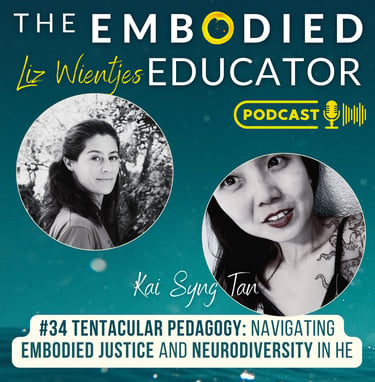
#34 Tentacular Pedagogy
Discover your Tentacles of Change as educator
Liz Wientjes
10/16/20243 min read
Navigating
Embodied Justice & Neurodiversity
in HE
with Dr. Kai Syng Tan
"..."
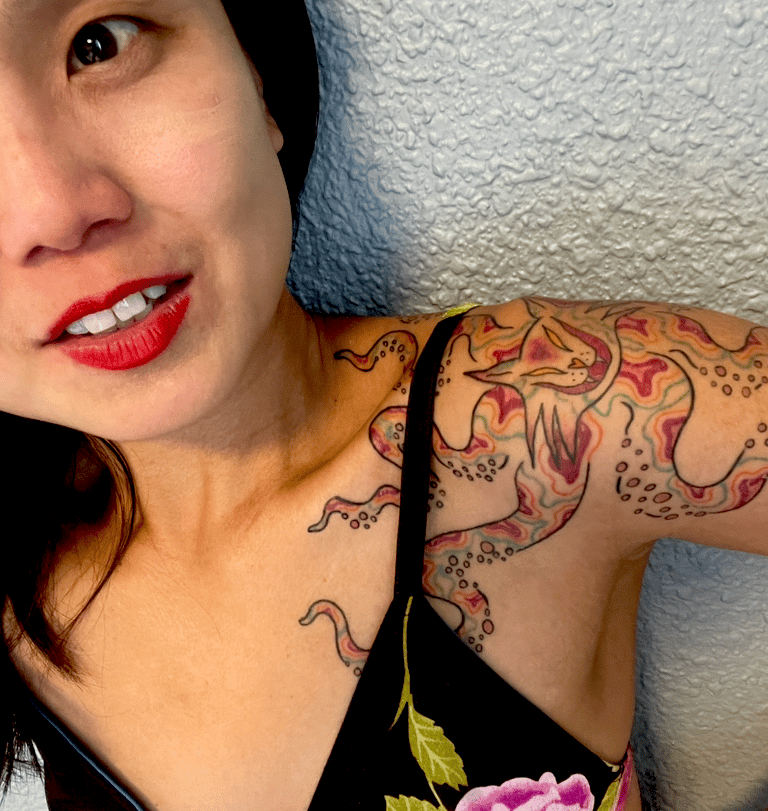


Embrace the power of embodied justice and neurodiversity
in which we explore the intersections of movement, identity, and systemic change in the classroom.
'Associate Professor Tan', 'Dr. Tan', 'Kai Syng Tan', 'Kaimera', 'Octopussy'
Allow me to introduce you to this multi-passionate, award-winning artist and academic who's transforming the landscape of Cultural Arts higher education with her funny, fierce and embodied approach!
In this fresh new episode we take a deep dive into #TentacularPedagogy.
With her uniquely tentacular perspective as a neurodivergent migrant and academic, Kai is all about "reshaping educational culture." Her research into leadership as a “#Decolonial, Co-Created, Neuro Queer Practice" is (in the form of a recently launched book!) evidence of her commitment to championing anti-oppression.
I recommend reading it and checking her website as it showcases a myriad of accomplishments on a deeper level of #inclusivity in teaching + learning + communicating + designing in a neurodiverse landscape. One where our historical imprints in our bodies are addressed and allowed to surface and be seen.
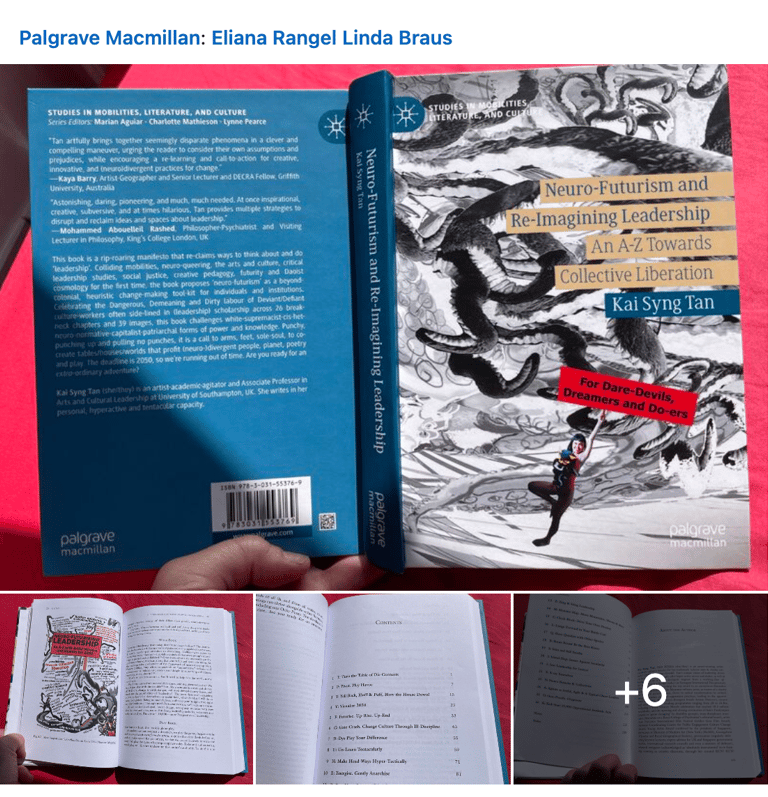

Reflecting on her influences, Kai shares, "I've been inspired by many teachers throughout my life." Of particular note is her admiration for Lao Tzu, a Chinese philosopher whose teachings resonate with Kai's vision for an educational framework that’s as much about the body as it is the mind, and having an animalistic sidekick to lean on and get inspiration from, maybe you know where this is going ;)
Funny fact is Kai got her PhD research participants all sweaty. “For my actual PhD exams, I took the examiners out for a run," illustrating her belief in movement as a catalyst for learning. This idea challenges the conventional, static classroom model by showing that physical activity enhances cognitive engagement.
Kai's perspective is a breath of fresh air, as she advocates for breaking down traditional educational boundaries. "It's about knowledge beyond just books," she says, urging educators to embrace a holistic approach that respects diverse perspectives. Her philosophy could usher in a dynamic shift from static learning methods to vibrant, interactive experiences. And on a systemic level she openly addresses the challenges faced by neurodivergent individuals in ableist environments. She advocates for voicing one's needs, stressing, "I refuse to and will walk away from work in a harmful and inequitable condition." By doing so, she highlights the broader responsibility for fostering inclusive and supportive work and learning spaces.
How would that look like you might wonder?
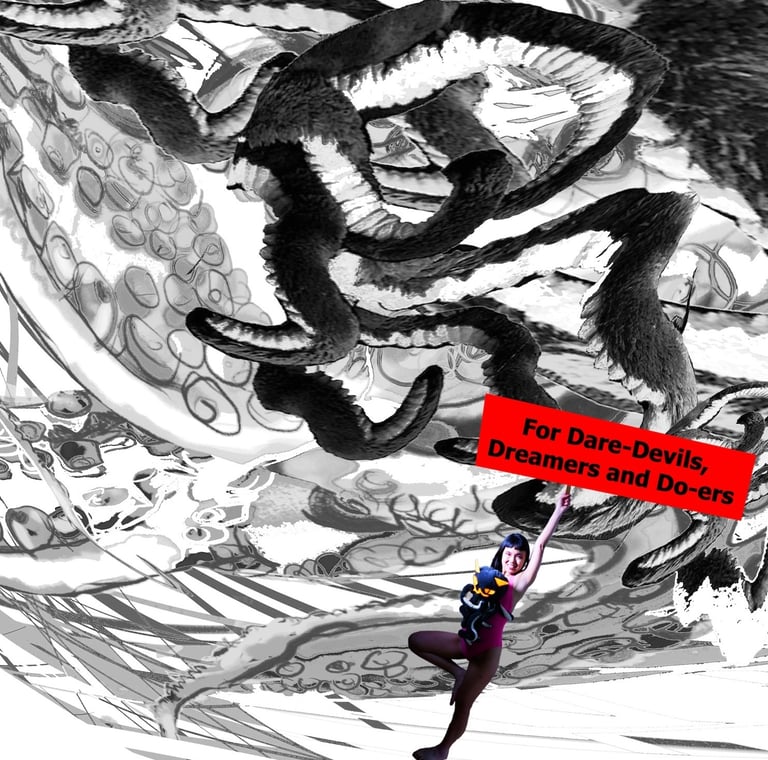

“By reassessing biases and nurturing allyship, educators can create classrooms where every student feels safe and valued.
This is so important for all levels of education,”
“By reassessing biases and nurturing allyship, educators can create classrooms where every student feels safe and valued. This is so important for all levels of education," emphasizes Kai, urging listeners to take part in this transformative journey.
If you are curious what the link is between Octopussy and Tentacular Pedagogy, come on over to watch or listen! It has something to do with this fascinating adaptable creature - the octopus. I promise it won’t bore you - as this artist brings another layer to education - she has the ability to bring theory and concepts to life.
We did have a technical issue, so not everything tentacular spectacular was recorded :( You can read up through this article. Did you know the octopus has 3 hearts?! "Tentacular Pedagogy’s heart(s) lies in neurodiversity, decolonisation (and the related notions of anti-racism and internationalisation), and intersectionality."
together with the 9 minds, represented by each tentacle, Kai weaves such important focus point into pedagogy< I truly hope her framework get's picked up, as it presents a perspective of wholeness to build our future education on.
Kai's contributions offer a compelling vision for educators seeking to create inclusive, innovative learning environments. By embracing the thoughtful insights shared in this episode, educators can help forge a culture of empathy and creativity, reshaping the learning landscape—one integrative step at a time.
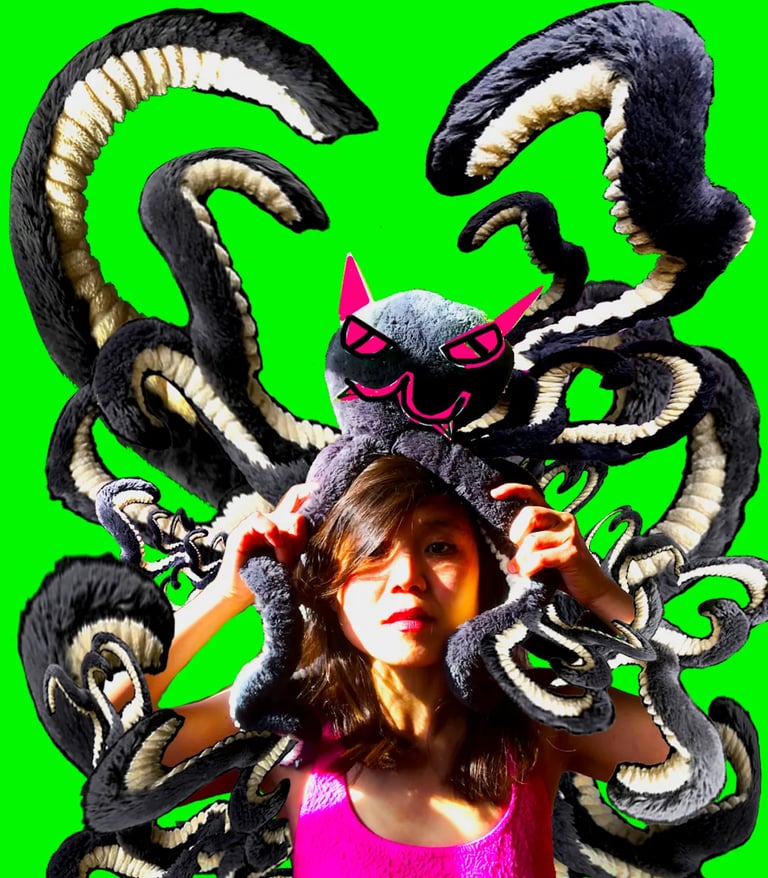


Let's connect to spread more
embodied sparks across education
liz@theembodiededucator.nl

